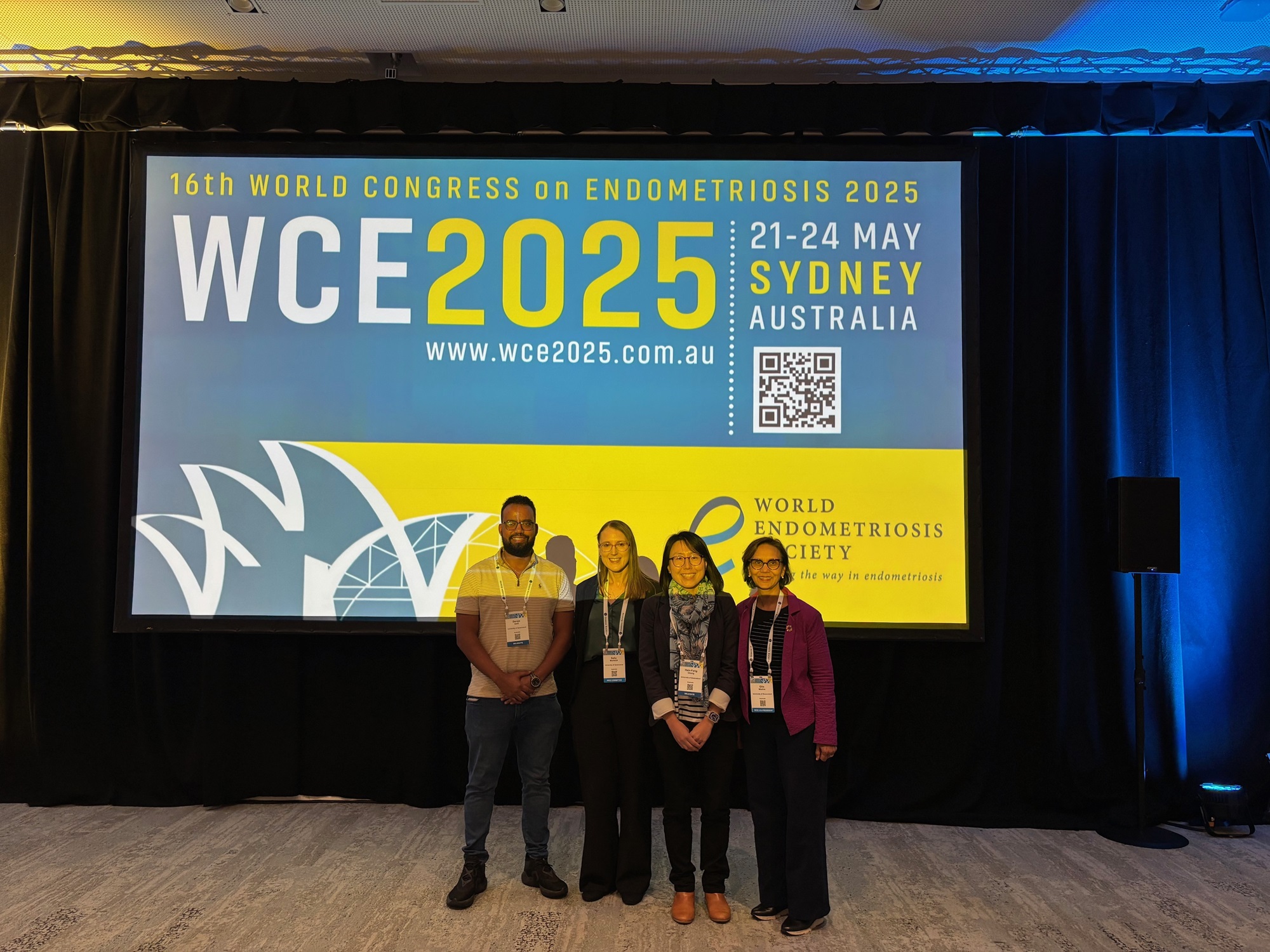More than 1100 researchers, clinicians and healthcare professionals from across 60 countries joined forces in Sydney recently, as part of the 16th World Congress on Endometriosis. The global event, held every two years, aims to understand endometriosis further and help advance patient treatment and care.
AWaGHR Centre Director, Professor Gita Mishra was Congress Co-President and led the four-day event alongside UNSW’s Professor Jason Abbott and shared insights on the condition which affects 1 in 7 Australian women.
Professor Gita Mishra said the event was an important step in the continual research on women and girls’ health.
“It was a privilege to co-lead the event and further our knowledge of this condition,” Professor Mishra said.
“Endometriosis affects a lot of women across the world. It’s a debilitating condition where tissue that is similar to the lining of the uterus grows outside the uterus. It causes painful periods and can cause other health issues such as early menopause and impact fertility.”
AWaGHR theme leader, Dr Sally Mortlock presented her research on the cross-cultural comparison of menstrual symptoms in women with endometriosis using insights from Australia and India. Dr Mortlock also presented a seminar session on the link between the regulation of genes in the lining of the uterus and endometriosis and presented at the Australia and New Zealand Endometriosis Research Networking Session, hosted by the Australian Coalition for Endometriosis (ACE).

AWaGHR’s Dr Dereje Gete presented research into hospitalisations and length of stays in women with endometriosis: a data linkage prospective cohort study.
“We found that women with endometriosis had more all-cause hospital admissions but shorter stays, often with same-day discharges, compared to those without the condition. Women with endometriosis experienced more frequent and prolonged hospitalisations after their diagnosis compared to before," said Dr Gete.
Dr Hsin-Fang Chung discussed her recent research into menopause and endometriosis. Using international longitudinal studies, the study found women with the condition had an increased risk of premature and early menopause both naturally and surgically.
“We found surgical menopause occurred, on average,19 months earlier in women with endometriosis, while natural menopause happened 5 months earlier,” said Dr Chung.
“Women with endometriosis are twice as likely to experience surgical menopause under the age of 40, or 1.4 times more likely to have natural menopause before 40.”
The research comes from InterLACE, a collaborative study that uses data from the UK, Sweden and Japan and includes the longest-running study on women’s health in Australia, the Australian Longitudinal Study on Women’s Health.



